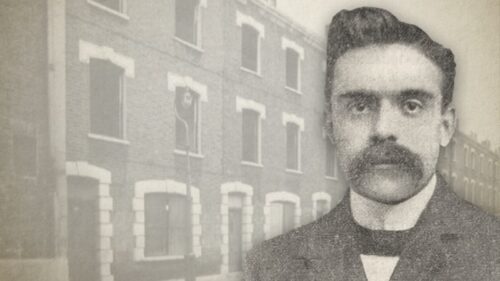
2. As A High-Calvinist, John Gill Was Responsible For Killing A Gospel Spirit Among The Particular Baptists?
John Piper asserts:
“Fuller himself certainly saw Gill as a High Calvinist responsible for much of the evangelistic deadness among his fellow Particular Baptists.”
There is an article written by George Ella called, “Exaggerated Claims Concerning Andrew Fuller And False Information Regarding ‘High-Calvinists’”. Ella points out:
“1795-1835 was a time of widespread revival with Anglican Robert Hawker preaching to thousands, Independent William Huntington equalled his efforts and Baptist William Gadsby founding 45-50 churches filled with new converts. The Particular Baptists were not inactive in this time but Mr Cook confuses Gill’s orthodoxy with Fuller’s. Gill had one of the largest Particular Baptist congregations in Britain, outnumbering Fullers by far. Contemporary evangelical magazines objecting to Fullerism’s ‘gangerous’ effect on church growth were legion. However, in 1814, Fuller claimed that his churches had shrunk greatly to an average of fifty members and had been steadily on the decline for 25 years. Church increase was due to split-offs due to Fullerite Liberalism. Yet Fuller confessed that other evangelical denominations were growing. By 1889 Fuller’s Association had renounced verbal inspiration and denied that the Scriptures give sure guidance in matters of holiness. The increase in Particular Baptist growth came demonstrably before Fuller and dwindled during his influence. As Strict Baptist Kenneth Dix said in 1976: “The influence of Fuller here has been exaggerated, often by those whose design is to trace a line of descent from the Calvinism of the Puritans, through a watered down moderate Calvinism, forgetting Fuller’s description of himself as a ‘strict Calvinist’, to modern ecumenism. It is a view which does less than justice to the eminent usefulness of Benjamin Beddome, Samuel Medley, or John Hirst, all of whom held to a high Calvinistic position, and to the enduring value of the writings of John Gill which are still read and sought after, two hundred years after his death.”
Jared Smith served twenty years as pastor of a Strict and Particular Baptist church in Kensington (London, England). He now serves as an Evangelist in the Philippines, preaching the gospel, organizing churches and training gospel preachers.
Jared Smith on Eldership
Jared Smith on the Biblical Covenants
Jared Smith on the Gospel Law
Jared Smith on the Gospel Message
Jared Smith on Various Issues
Jared Smith, Covenant Baptist Church, Philippines
Jared Smith on Bible Doctrine
Jared Smith on Bible Reading
Jared Smith's Studies in Romans
Jared Smith's Hymn Studies
Jared Smith's Maternal Ancestry (Complete)
Jared Smith's Sermons





